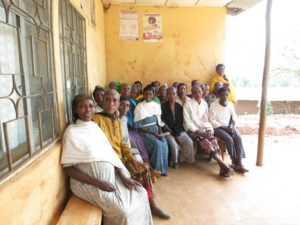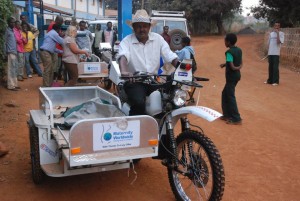
In 2009 Dr Camilla Ducker and Nurse Practitioner Liz Yea carried out an evaluation for Maternity Worldwide of the antenatal care needs of the women in the area. Over three weeks they provided outreach clinics to the 40 villages where Maternity Worldwide was already working. The response was huge, with over 1000 women attending the clinics, clear evidence of a major unmet demand for antenatal care in the area.
In some rural areas of Ethiopia 96% of women receive no antenatal care
Following a period of concerted fundraising Dr Ducker returned to West Wollega in April 2011 with the resources needed to establish a three year pilot antenatal care project. The Primary Care Outreach Project (PCOP) aims to contribute to reducing maternal mortality by addressing two delays – firstly that around deciding to seek care if a complication occurs in pregnancy and secondly the delay around receiving suitable care.
The project comprises three components:
- The implementation of women’s care groups whereby a group of local volunteers receive professional training and regularly visit women neighbours to extend the reach of care.
- Providing focused antenatal care through locally based cluster clinics. This provides pregnant women with regular access to well trained and equipped doctors and nurses who can identify any problems and provide an entry point to any other services needed.
- The provision of e-ranger motorcycle ambulances to provide quick and relatively cheap transport for pregnant women when it is needed.


